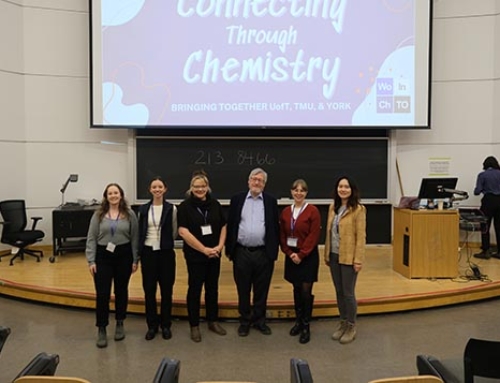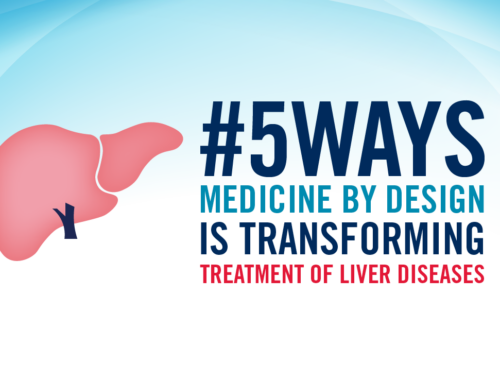
Professor Molly Shoichet from the University of Toronto’s Department of Chemical Engineering & Applied Chemistry, and Institute of Biomedical Engineering appeared on CTV News for World Sight Day.
Molly Shoichet, a Medicine by Design-funded researcher and University Professor at the University of Toronto (U of T), recently discussed her work on treating vision diseases with CTV’s Pauline Chan, in a segment that aired on Oct. 12 in advance of World Sight Day on Oct. 13.
Shoichet, who is an expert in polymers and tissue regeneration, said in the segment that her team has a multi-pronged approach to seeking treatments for eye diseases like macular degeneration and retinitis pigmentosa, as well as retinal detachment.
“We are so motivated by the patients to try to make a difference” said Shoichet, who is a faculty member in the Department of Chemical Engineering & Applied Chemistry and at the Institute of Biomedical Engineering, and an investigator at the Donnelly Centre for Cellular and Biomolecular Research.
The segment focused largely on the Shoichet lab’s hydrogels, which Shoichet is applying to different types of vision problems. The gels could be used to make retinal re-attachment much easier and more comfortable for the patient and, in a regenerative medicine application, could also deliver therapies such as cells or proteins directly to the eye to slow down degenerative diseases like macular degeneration.
“[The hydrogel] matches the native vitreous in terms of transparency and refractive index density. We designed it specifically for that application,” said Shoichet.

The segment focused on the Shoichet lab’s hydrogels.
Shoichet leads a large Medicine by Design team project focused on finding better outcomes for treating blindness. On this project, she collaborates with Valerie Wallace, a senior scientist at the Donald K. Johnson Eye Institute at the University Health Network; Derek van der Kooy, a professor of molecular genetics at the University of Toronto; and Julie Lefebvre, a scientist at The Hospital for Sick Children.
Shoichet also recently received a Pivotal Experiment Fund grant to advance the use of the hydrogels to deliver a therapeutic that saves photoreceptor cells from dying in retinitis pigmentosa and age-related macular degeneration.
Age-related macular degeneration (AMD) is one of the most common eye diseases to affect adults over 60. Almost 2 million Canadians, according to the Canadian Ophthalmological Society, live with AMD. Retinitis pigmentosa is an inherited disease that affects around one in 400 Canadians and has minimal treatment options.





